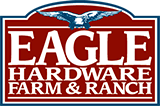People often want to feed deer what is handy, which might be sheep, goat, dairy, or even horse feeds. The problem is these feeds are not formulated for deer, do not meet their specific needs, and may even cause problems.
Sheep are very intolerant of dietary copper, so sheep feeds and, traditionally, most goat feeds contain very low levels of copper. They are also usually lower in protein than what deer will need. Deer, and elk, too, have fairly high copper requirements. Feed meant for sheep will be deficient in copper and most other trace minerals for deer and elk, and will likely not provide enough protein for optimal antler growth.
Commercial dairy feeds are formulated to maximize milk production, which has very different nutrient requirements than antler growth. These feeds do not have the proper starch-to-fiber ratio or the trace mineral fortification required for superior antler growth.
Horse feeds, especially textured feeds such as grain mixes, will be too high in soluble (starchy) carbohydrates for deer, inviting problems with acidosis and founder. The protein level also will not be high enough to provide for maximal antler growth. Again, the feed is designed for an animal with a different digestive tract and different production goals than deer.
If you want big, healthy deer that can achieve their genetic potential for antler growth, you need to feed a high-quality feed designed specifically for deer. Anything less will give you just that: less.
Source: Purina Mills
